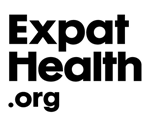The country spends about 10 percent of its GDP on health, placing Switzerland near the top of OECD countries for medical expenditures. This considerable investment means the country possesses a wealth of medical facilities employing the latest technology, as well as one of the world’s lowest patient-to-doctor ratios. The high level of health care in Switzerland comes at a cost - everyone living in the country is required to have basic health insurance.
Expats need a health insurance scheme
Expats must obtain health insurance within the first three months of their arrival in Switzerland and babies must be insured within three months of birth. The only people exempt are international civil servants, members of permanent missions and their family members. Individuals are responsible for contacting insurance providers, since employers do not necessarily arrange for coverage.
For Swiss citizens, the government subsidises the system and as health insurance premiums are not linked to income, everyone pays the same. There is a statutory annual contribution to the cost of outpatient treatment and medicines, payable by all adults. The basic insurance covers examination and treatment by a doctor, the cost of treatment in a general ward of a hospital, and treatments and medicines prescribed by a doctor, with patients usually being required to pay 10% of the expenses. Around 40% of the Swiss population has supplementary private health insurance.
In some cases medical treatment is payable upfront, a bill for payment within 30 days will be issued, to be forwarded to the relevant insurance company.
Outpatient medical care is provided mainly by doctors in private practice, and the outpatient departments of public hospitals or private clinics. Individuals are free to visit any doctor, and also have direct access to specialists. Switzerland has 24-hour pharmacy facilities throughout the country.
To compete in the market for compulsory health insurance, a Swiss health insurer must be registered with the Swiss Federal Office of Public Health, which regulates health insurance under the 1994 statute. The insurers were not allowed to earn profits from the mandated benefit package, although they have always been able to profit from the sale of actuarially priced supplementary benefits.
Regulations require a 25-year-old and an 80-year-old individual pay a given insurer the same premium for the same type of policy. Overall, then, the Swiss health system is a variant of the highly government-regulated social insurance systems of Europe, which relies on ostensibly private, nonprofit health insurers that also are subject to uniform fee schedules and government regulations.
The compulsory insurance can be supplemented by private "complementary" insurance policies that allow for coverage of some of the treatment categories not covered by the basic insurance or to improve the standard of room and service in case of hospitalisation. This can include dental treatment and private ward hospitalization, which are not covered by the compulsory insurance. Expats moving to Switzerland need to ensure they are covered by private medical insurance, in order to be covered for all healthcare eventualities.
A European Health Card is not always enough
As Switzerland is part of Europe, many people mistakenly believe that if they are European at least, they will be covered automatically under the European Health Insurance Card scheme, even at a basic level for healthcare. However, it is compulsory for non-citizens of the country to ensure they are covered independently within three months of relocating to the country, as they will be exempt from free healthcare.
As the Senior Executive Director of Medicare International, David Pryor, put it "expats employed in Switzerland for less than three months, and unable to submit proof of private medical insurance from their home insurance, it is necessary to take out Swiss insurance, which could be a great deal more expensive for expats." For Swiss workers, sickness benefit is very rarely arranged by an employer, so an individual is nearly always responsible for organising this themselves. Only if your employer has an agreement with a specific insurer and pays part of the premiums, will an individual be forced to choose a specific provider. To ensure peace of mind before relocating to Switzerland or even working there for a short period of time, expats should make sure they are fully covered, as without it, they will not be covered for even minor medical ailments.
For details of MediCare’s International health insurance plans visit www.medicare.co.uk , email or call +44 (0) 20 7204 3700.




